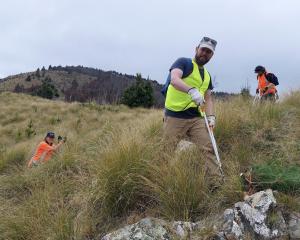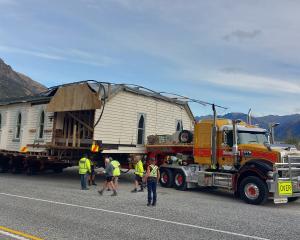Tourists who fall off their bikes are being used to help promote Otago's bid to be rid of cellphone black spots.
The Ministry of Business, Innovation and Employment has invited the country's local authorities to put their cases for a share of a new $50million ''mobile black spot fund''.
In the joint application made by all Otago city and district councils earlier this month, the safety of cyclists is a feature, alongside motorists' safety.
Several cycle trails - the Otago Central Rail Trail, Alps to Ocean Trail and Clutha Gold Trail - are in the areas where roads and trails have cellphone black spots (see map).
''Currently, coming off a bike may require walking a great distance when this is very painful or not possible,'' the application says.
It also points out getting rid of black spots would be good for cycle tourism businesses.
''Tourists increasingly demand access to mobile services at all times to share and communicate information and make consumer choices.
''Providing mobile coverage in these areas will make cycle trails more appealing to tourists and allow businesses to make targeted offers and applications.''
The application puts the highest priority on the black spots of State Highway 8 - between Omarama and Tarras, Milton and Ettrick, and Clyde and Cromwell - which are of serious safety concern as well as being on an important tourist route connecting Queenstown with the east coast.
The application includes testimonial from Cromwell general practitioner Brendon Pauley on the 57km black spot across the Lindis Pass.
Dr Pauley said communicating with specialist services was always difficult over the pass and improved coverage would be useful.
Cromwell tow truck operator Ross Hansen pointed out vehicle breakdowns on the pass would be more easily dealt with if cellphone coverage was improved.
The co-ordinator of the joint bid, Central Otago District Council economic development manager Warwick Hawker, told the Otago Daily Times information from the councils would go to companies that provide cellphone infrastructure so they could look at costs before the Government decided which black spots it would eliminate.












